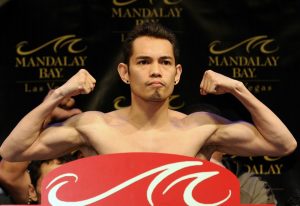
Throughout the past 5 weeks, I have enjoyed all of the books we have read so far. I’m not typically one who is a bookworm/reads on my own time, but I do feel like, after reading these books, I’d go back and read them again, in an attempt to spot details I may have missed.
Sadly, Dark Blue Suit didn’t quite cut it for me.
Like most of the other books we have read so far, this book was just a bunch of flashbacks, leading up to the last few pages being present-time, where Buddy looks upon the graves of loved ones. I don’t feel like Buddy had any sort of primary struggle, and rather described other’s struggles without knowing the full details (since silence and secrets played a big part in this story). It focused on how Buddy was lucky to be able to accomplish bigger dreams (as also stated by Rico), such as his mother being fully prepared to give her children a great life, allowing him to enter law school. This, in-turn, did not allow him to understand the full struggle of Filipino-Americans in the United States, and how they got where they are today. Also, unlike the other books we have read, Buddy fully embraces both his Filipino and American heritage, not facing some sort of identity crisis. Which is an interesting perspective, especially since it makes Buddy, the main character, more like an observer in this sense, really putting into use the first-person limited perspective.
I noticed one of the biggest themes being mentioned in the first two paragraphs of the book: the American dream. I think that was my favorite part of the book, how it uses the flashbacks to disprove the American dream speculation that they learned in the Philippines. For example, I think it definitely accomplished its goal in disproving that moving to America is a “fresh new start”, by using his father and his cousin as examples. Both of them moved to America in hope of a better life, only to have Leo be arrested upon their first day of arriving, and being told “Welcome to America” even after being told that Leo wasn’t drunk.
The two also had to give up on their dream job in Alaska upon having children and working at a cheaper job. His father wanted to go back to doing that job again even after Buddy was born, often discussing it with Leo, but in the end never got to work there again. In the end, this applies to the many Filipino-Americans who moved here, hoping for the same dream-like results his dad and Uncle Leo searched for, only to come empty-handed. This is the reality of Asian-American immigration.
I also expected the book to cover boxing more than it did, perhaps describe the father’s experience, or perhaps let the son obtain some sort of career in it. I was surprised about how little it was covered, only having one chapter dedicated to it, Rico’s experience, and one memory of it with one of his Uncles, who was a big fan of the sport. I can understand why the son didn’t get into it; it seemed like an unhealthy way to relieve stress (as he noticed from his father, who often picked fights), but the cover has pictures of boxing. Boxing is definitely some sort of symbolism for Filipino-Americans finally being equal to white people, or even better, but I found the cover rather misleading. Unless I am just missing something here.
In the end, I feel like covering Filipino-Americans and their struggle was fine, but… I don’t know. I expected more? I think the boxer on the cover definitely mislead me to believe that this would be about a Filipino-American’s boxing career, so that’s why I feel somewhat disappointed.